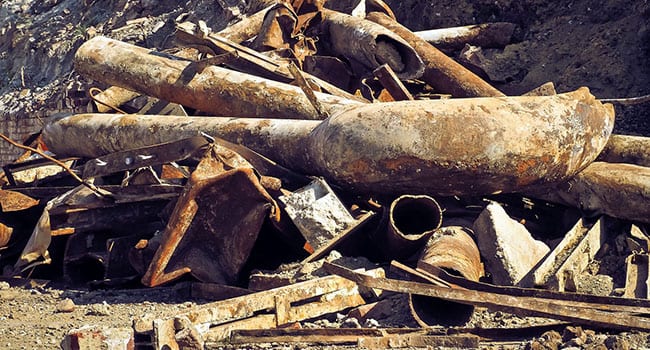 In January 2019, a group of breakaway hereditary chiefs from Wet’suwet’en First Nation in the interior of British Columbia erected a blockade on a remote forestry road in protest of the proposed Coastal GasLink pipeline to Kitimat, B.C.
In January 2019, a group of breakaway hereditary chiefs from Wet’suwet’en First Nation in the interior of British Columbia erected a blockade on a remote forestry road in protest of the proposed Coastal GasLink pipeline to Kitimat, B.C.
Eventually, the issues were addressed, the barricade came down and work on the site resumed. Observers worried about the potential for police intervention and an escalation in an already tense situation.
In 2014, the elected First Nation leadership of Wet’suwet’en signed a multimillion-dollar liquefied natural gas (LNG) pipeline benefits agreement with the province of British Columbia. At the time, the hereditary chiefs claimed they were not adequately consulted; they claimed responsibility for the lands in question.
Fast forward to January 2020 and the situation has flared up again. Hereditary chiefs from the community once again erupted in protest over their claimed lack of consultation. The chiefs demanded an audience with B.C. Premier John Horgan. So far, Horgan has been adamant in stressing that proper consultation occurred and that the project will proceed.
There’s much at stake here beyond the interests of the Wet’suwet’en and TC Energy (previously known as TransCanada). B.C. and Canada have an interest in the orderly development of natural resources. Getting natural gas to Asian markets (as Coastal GasLink will do) will enhance Canada’s position in terms of LNG competitiveness and help wean Asian countries off of coal, which is good for the environment.
The duty to consult and accommodate Indigenous communities is a legal requirement for the Crown – through private parties – to engage in good faith negotiations with Indigenous communities if their rights and interests are affected and if they’re affected negatively, to help mitigate those effects.
The duty to consult does not mean unanimity of support is required from all parties involved.
The federal government and all the provinces and territories have their own duty to consult framework, but often they’re a patchwork of incomplete and interim policies.
These policies require the Crown, through resource proponents, to engage with the community through its legal government. But the policies don’t specify exactly who or which parts of a government they need to consult with. In this case, the policy framework doesn’t clarify which part of the Wet’suwet’en government or faction they need to satisfy to meet the legal duty. The internal governing processes of Indigenous communities is not the purview of the Crown or the private parties involved.
The issue of hereditary chiefs is more specific to British Columbia, where many Indigenous communities are made up of houses and titles of hereditary chiefs that are passed down through families. Conflicts between elected Indian Act band councils and hereditary chiefs have always occurred and they’re getting more pronounced with more members of communities being active in opposing the Indian Act and arguing for more traditional forms of governance.
In this era of Indigenous reconciliation, these demands will likely increase.
The underlying issues also became more conflicted with B.C.’s passage of legislation aimed at implementing the principles of the United Nations Declaration on the Rights of Indigenous Peoples (UNDRIP) into provincial legislation. In particular, critics are concerned over how the province will implement certain provisions related to obtaining consent. Although legal experts have been clear that these provisions don’t amount to a veto over projects, often Indigenous leaders become more emboldened and interpret the provisions as amounting to a de facto veto.
British Columbia should have been clear on what the provisions of UNDRIP were in the law, clarifying that consultation was not a veto.
Indigenous communities clearly need to do much work internally in resolving governance issues and ensuring that various bodies and factions are being satisfied. They need to do this prior to consultation with companies. The provinces and territories can also better clarify consultation protocols in their duty to consult frameworks.
Resolving these Indigenous governance issues as well as cleaning up duty to consult policies is good for the First Nations involved as well as Canada.
Progress on these files can also be linked to Canada’s international economic strategy of becoming a leader in supplying natural gas to Asia and Europe. Both regions are eager to transition out of coal and use much more natural gas because of its lower emissions. Canada can ship LNG through the West Coast or the East Coast, via Nova Scotia.
In the meantime, First Nations and governments need to work out these critical governance and consultation matters.
Joseph Quesnel is a research associate with the Frontier Centre for Public Policy.
Joseph is a Troy Media Thought Leader. Why aren’t you?
The views, opinions and positions expressed by columnists and contributors are the author’s alone. They do not inherently or expressly reflect the views, opinions and/or positions of our publication.

